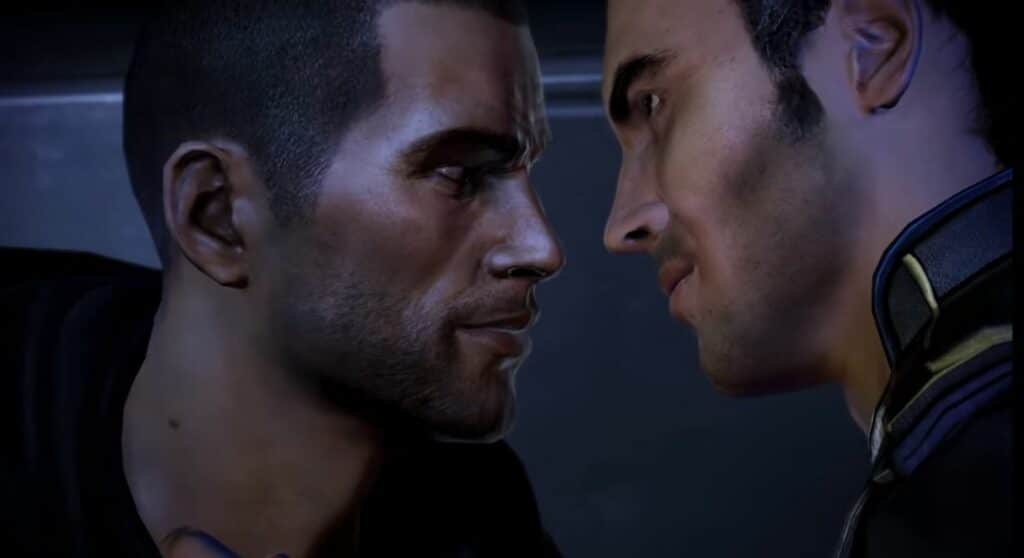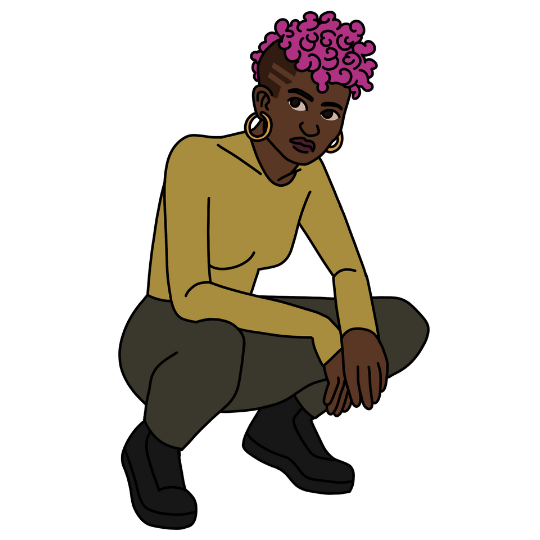Character Creation and the Privacy of Playing with Gender
Posted: 23 Jun 2022Video games have offered queer nerds a safe space to explore aspects of themselves for decades.
I’m not the first to have noticed, and more personally felt, this phenomena and I most certainly won’t be the last. From romancing characters of the same gender, to opening up a new save and creating a character of the opposite one, games have always been playgrounds for positive exploration of sexuality and, especially, gender.

Gaming is often a solitary hobby with the majority of releases focusing on single-player campaigns. Because of this, gaming is often also a very private hobby, with players retreating to their bedrooms or studies after school or work to tune out the rest of the world and dive into the one loading up in front of them.
It’s this privacy that is important to why video games lend themselves so well to gender exploration. Players can dive into a new skin with a sense of security, knowing there’s nobody to perform for.
See, there is still an awful societal pressure for queer people to know exactly how to label themselves as soon as they are comfortable coming out, particularly queer youth. Society perpetuates the idea that changing your mind, discovering something new about yourself, or growing into a new identity is something to be ashamed of. I’m sure you’ve heard the stereotype prescribed to bisexuality as the ‘in-between’ step towards ‘realising you’re actually a lesbian / gay man’ or the similar belief that coming out as non-binary is just one step away from coming out as binary transgender.
For many people, discovering themselves does lead them from one label to another, but these stereotypes have come to assign a certain amount of shame to that. These should-be-comforting moments of self-discovery can become tainted as wrong-turns, when in reality they’re often natural progressions.
This is where the privacy of video games, and character creation, come in. Not only does creating a new persona to inhabit allow you to test the waters of presenting and identifying in a different way, but you can experiment and change that persona as you go, sometimes within games and sometimes between them. All within the privacy of your own save files.
Animal Crossing: New Horizons, for example, was the first game in the Animal Crossing franchise to remove gender restrictions in the game. Previously you would be asked to choose ‘girl’ or ‘boy’, often in bizarre dialogues where the question isn’t specifically asked but is instead assumed on whether you think your name is ‘cute’ or ‘cool’…you know, the two genders. Clothing options and haircuts would be restricted depending on this choice, and it couldn’t be changed without creating an entirely new character.
New Horizons, however, let’s you change your gender marker whenever and clothes and haircuts are available to all. In an interview with The Washington Post, Aya Kyogoku, the game’s director, spoke about this flexibility of gender in New Horizons:
“We basically wanted to create a game where users didn’t really have to think about gender or if they wanted to think about gender, they’re also able to.”
This freedom offers small and private moments of gender affirmation, including when that affirmation comes in freedom from gender; letting you run around knowing your character’s gender marker is set to boy while you terraform in your most ‘girly’ cottage-core dress with not a single villager caring (something I did myself).

What happened with New Horizons is just one of the examples of the ways game designers are beginning to push better representations of gender. More games are allowing a mixture of traditionally feminine or masculine traits within one character, including non-binary identities, and are providing a wider / mixed choice of pronouns. While this has been in the works of several developers over the years, it came more to the forefront during Covid when separation from society was greater and people had the space and privacy to experiment in real life as well as in their
games.
During this time, I myself remember playing Arcade Spirits, the already very queer dating sim from Fiction Factory Games. On opening the game, I was met with a character customiser where I was able to give my ‘me’ a cute blonde bob, a masculine build, and, for the first time, they/them pronouns. It was one of the first times I had been able to experiment with these pronouns; despite wanting to see how they felt for me, I wasn’t yet comfortable asking others to try them out.
But there, alone in my bedroom with a cup of tea and my laptop propped up on plushies, it felt private and personal and good. After I finished the game, I was able to recognise that, while those pronouns did feel right for me, there were times where I missed more gendered ways of presenting and interacting in-game. This Arcade Spirits version of me didn’t quite capture ‘me,’ and it was affirming to uncover that without the onlooking eye of others.

That experience could not have been the same were it broadcast and shared with others, and Arcade Spirits is only one example of how powerful the intimacy with video games can be. It’s why there is so much queer joy waiting to be found in games, because there is always excitement in the fact that we can try again and again to learn more about ourselves whenever we load into the next character creator.

